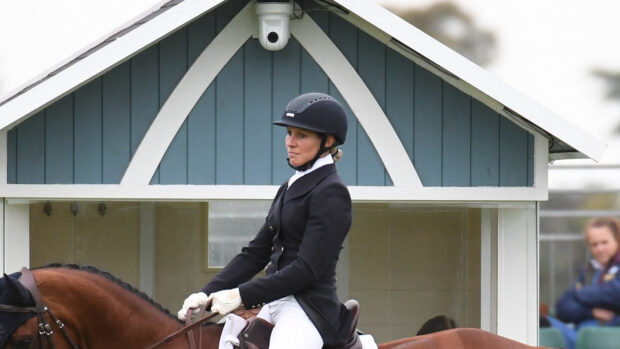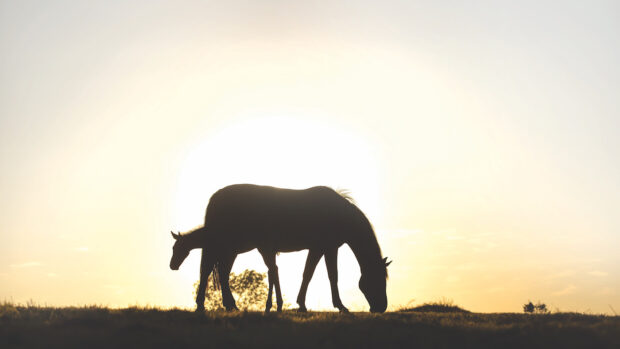Legislation that could pave the way to relax restrictions on gene editing in animals is making its way through the law-making process.
The Genetic Technology (Precision Breeding) Bill was outlined in The Queen’s speech on 10 May, forming a timely backdrop to a gene editing debate at the Animal Welfare Foundation (AWF) discussion forum a stone’s throw from Parliament the following day.
The ethical question of whether gene editing compromises animal welfare was thrashed out, with experts presenting arguments on both sides.
The ability to cut out certain hereditary conditions and diseases in the space of one generation is one of the major benefits. On the other side are concerns about how and why mankind would use this – and potential negative effects of procedures on animals.
“Gene editing has the potential to compromise welfare faster and more severely than anything that has come before it,” said Matt Leach, animal sciences group lead at Newcastle University.
“By changing animals to fit our needs we run the considerable risk of reducing our moral responsibility towards the animals we keep.”
He likened the technology to a “magician’s wand” used to suit human needs better, and the potential for unintended consequences.
Penny Hawkins, RSPCA head of animals in science department, advocacy and policy directorate, warned of “serious and unprecedented issues” and said she was “deeply disappointed” to see the bill in The Queen’s speech.
She added that humans have been altering animals “for millennia through selective breeding”, but that gene editing brings all the methods used together “in a new way that adds up to more than a sum of its parts”.
“Science doesn’t operate in a vacuum. It operates in the public’s name and with public money,” said Dr Hawkins, adding that many people have strong views on the matter.
“It’s being done in the public name, in the public consciousness and they deserve to be respected.
“Should the person with the resources and expertise to do the work be the decision-maker? My answer is no.”
She voiced concerns that gene editing could be used as a means to perpetuate poor practices, such as over-stocking, and suggested many “human problems” could be resolved through traditional methods and better husbandry.
On the flip side, arguments were made that gene editing has the potential to improve animal welfare very quickly – not just for one animal, but for generations to come.
Madeleine Campbell, specialist in equine reproduction and European diplomate in animal welfare science, ethics and law, argued that the technology is a “unique tool for improving animal welfare”.
She added that it is a more selective tool to give much more specific and predictable results than selective breeding.
“For me, far from compromising animal welfare, gene editing should be used to enhance it,” she said.
“Further than that, I would argue it can be considered an ethical imperative that we should make use of it.”
Dr Campbell gave examples of preventing hereditary diseases from being passed on – within a single generation – and the possibility of reducing certain fractures in horses.
Bruce Whitelaw, chairman of animal biotechnology and director at the Roslin Institute, argued that how we choose to use the tool is the real ethical question, rather than the technology itself.
He added that humans have been selecting natural variations through breeding for a long time, and this is a tool that speeds that up.
“I believe it can bring significant welfare advantages. If we as human beings choose to use it in a way that compromises [welfare] that isn’t the fault of the gene-editing tool, that is a choice,” he said.
“Gene editing is the tool that allows us to create the genome of choice, rather than rely on chance.
“The goal of increasing welfare levels for animals by reducing the levels of disease is very credible. We will strive to do that whatever way and gene editing is just another tool to be able to do that.”
The importance of having robust monitoring systems was raised during the debate, as was the subject of how and where to draw the line between gene editing and unacceptable gene doping for performance. At what point gene editing becomes a “one health” benefit – improving both the lives of animals and by association, the humans caring for them – was also raised.
The debate looks set to continue both in Parliament and wider society for the foreseeable future. The Genetic Technology (Precision Breeding) Bill had its first reading on 25 May and is back before Parliament on Tuesday (14 June).
The legislation, if passed, would first apply only to plants. Its intention is to “cut unnecessary red tape for gene editing, helping our farmers to grow more resistant, nutritious and productive crops”. There would be further hoops to jump through before it could be permitted commercially in livestock.
You might also be interested in:

Subscribe to Horse & Hound magazine today – and enjoy unlimited website access all year round

Veterinary treatment of horses – what is in the horse’s best interests and when is it not?

Managing rats and mice at the yard: ethical considerations of dispatching rodents under the spotlight

Vets’ extreme disappointment at overweight show horses at Royal Windsor

Dark clouds or a bright future? Why the sport must work together on mental health
Horse & Hound magazine, out every Thursday, is packed with all the latest news and reports, as well as interviews, specials, nostalgia, vet and training advice. Find how you can enjoy the magazine delivered to your door every week, plus options to upgrade your subscription to access our online service that brings you breaking news and reports as well as other benefits.




